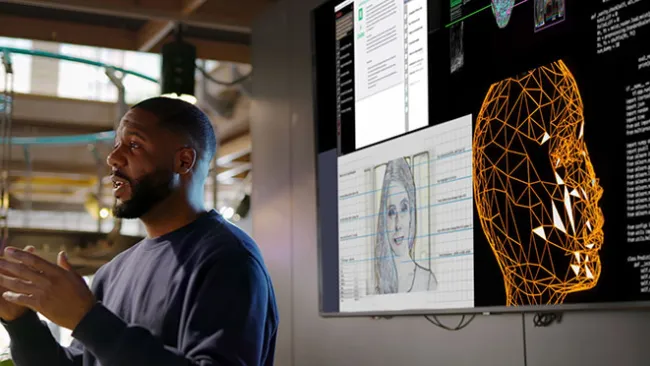A new year brings new opportunities for brands to level up their customer experience (CX) and in 2025, many plan to prioritize CX fundamentals like personalization, omnichannel orchestration, and employee experience — but with an increasing reliance on AI and analytics.
We asked brands what their top CX priorities for the new year and beyond will be, and several common themes quickly emerged. Now more than ever, companies aim to reduce frustration, meet customers in their channel of choice, uncover efficiencies, and embrace the power of data.
Personalization remains key to strong CX
Personalization has long been a focus for many brands, but AI-enhanced tools bring new potential for companies to deliver experiences that feel truly customized.
“In a data-driven world, personalized engagement is key,” said Abhi Madan, co-founder and creative director at Amarra, a high-end fashion brand. “We plan to invest in AI and machine learning technologies to enhance shopping experiences by offering tailored recommendations.”
The brand also will strive to better integrate its online and in-store shopping experiences, Madan said: “We aim to offer services like ‘virtually try before you buy’ and synchronize online and in-store inventory and customer records.”
Kimberfire, an engagement ring and jewelry brand that blends online and in-store shopping experiences, also has its sights set on improving personalization.
“As a luxury brand, we know that CX is most impactful when it feels customized to each client,” said Founder and CEO Jonathan Goldberg. “In 2025, we’re doubling down on technology to refine the way we match diamonds and jewelry to clients based on personal preferences and budget.”
He added: “We’re investing in features that help clients transition smoothly from online consultations to in-person visits, with all preferences and requirements seamlessly carried forward. This approach allows us to meet our clients where they are, whether they prefer remote guidance or a hands-on selection experience.”
At All Filters, an online water and air filter retailer, CEO Shu Saito said the company has realized the value of maintaining personalized interactions even after a sale has been made.
“We’re placing greater emphasis on post-purchase personalization, a step that’s often overlooked,” Saito said. “By sending timely and relevant follow-up information, such as personalized product care tips or accessory suggestions, we ensure that customers feel valued even after their initial purchase. This strategy strengthens loyalty and opens up cross-selling opportunities based on individual usage patterns and preferences.”
The company also intends to better tailor interactions to shoppers’ specific needs, in part by investing in advanced CRM tools that track customer interactions across all channels.
AI and analytics help tailor interactions
Many companies will rely on AI tools to make interactions feel more bespoke, including online dress retailer Pretty Moment.
“Chatbots with upgraded artificial intelligence language abilities will provide real-time support 24/7 and, at the same time, understand and respond to customer inquiries in a personalized way,” said Eva Miller, the company’s vice president of marketing. “I foresee these tech-enabled strategies not only putting us at the forefront of online retailing but also securing us a higher customer satisfaction and loyalty rate.”
AI is part of the brand’s broader effort to provide shoppers with highly personalized experiences based on their individual preferences and shopping histories, she said.
AI and data analysis go hand and hand, and brands aim to harness the power of their data in 2025.
“We plan to leverage the power of data analysis…to better understand our customers,” said Forrest Webber, owner of online home improvement retailer The Trade Table. “Armed with insights, we’ll tailor our interactions, ensuring each client feels unique and valued.”
A strong omnichannel strategy will also be important for the brand, he said: “Acknowledging the increased adoption of smart home technologies, we are exploring avenues to integrate with platforms like Alexa or Google Home, adding a new level of convenience to our customer service support.”
It’s not just retail businesses that plan to increase investments in AI. The Gori Law Firm, which has 10 locations nationwide, will focus on improving its AI chatbot in 2025, upgrading it to offer more empathetic and tailored responses.
“By advancing its language processing and adding sentiment analysis, our AI can provide thoughtful, compassionate responses, helping clients feel supported even in the most challenging moments,” said David Sides, marketing strategist for the firm.
The Gori Law Firm also plans to invest in “hyper-personalized resource hubs” to give clients access to articles, videos, and FAQs that are tailored to their individual needs, he added. “Through these initiatives, we aim to create a client-centered experience that leaves a lasting, positive impact," he said.
Real-time technology enhances transparency
Several companies noted that customers want more transparency, specifically when it comes to tracking the status of orders, so investing in technology to help will be a priority.
“Customer inquiries for real-time tracking have increased by 30% during the last 12 months,” said Pramod Bhat, CEO of Canadian e-commerce shipping business Stallion Express. “We’ll invest in cutting-edge technology and an intuitive mobile app to solve this and make it simpler for clients to keep track of their shipments.
The company also plans to focus on tailoring its customer journey, using data analytics to understand clients’ interests better and inform the brand’s messaging, Bhat said.
Metal Marker, a manufacturing company, also intends to invest in real-time order tracking systems to provide “end-to-end transparency” for customers, said President David Primrose. Investments like this will help reduce complaints, increase satisfaction, and grow loyalty he said.
He also wants to streamline internal operations. “We recognize that strong CX isn’t just about generating new profits,” he said. “It’s about creating efficiency that leads to significant savings.”
EX moves to the forefront
In addition to focusing on customer journeys and the latest technology, some business leaders will strive in 2025 to build brands that employees are proud to work for. For them, employee experience (EX) and sustainability will be priorities.
“Satisfied, engaged employees provide the best possible customer service. This is why, in the next year, we’ll be focused 100% on creating an inclusive and positive workplace for our team,” said George Matusyan, owner and operational manager of contractor United Windows Pro.
Beyond offering competitive pay and benefits, he said, the company will invest in advanced training courses to ensure its installers and consultants have the most up-to-date information and skills to tackle any project. The company also plans to promote open lines of communication, solicit field feedback, and empower staff to make on-site decisions for clients.
“This investment in EX will eventually translate into a seamless CX,” said Matusyan. “Investing in a fulfilled, empowered team is our way of guaranteeing great customer service that keeps United Windows at the forefront of home improvement.”
E-commerce retailer Best Online Cabinets plans to augment the connection between its employees and its customers, improving experiences for both. It will create a comprehensive online resource center and offer virtual design consultations, according to COO and Co-founder Josh Qian.
“We want our customers to collaborate directly with our design team to create custom kitchen layouts tailored to their specific needs,” said Qian. “We also plan to streamline our ordering process with advanced tracking capabilities that keep customers informed at every step, from purchase to delivery.”
Sustainability remains a focus
In recent years, customers and employees alike have increasingly preferred to support brands with a social conscience, and sustainability goals will continue to drive some investments in 2025.
Qian said his company has plans to introduce more ecofriendly designs. Similarly, Amarra’s Madan said his company will work toward “more eco-conscious manufacturing processes and offering more clothing lines made from sustainable materials.”
Environmental considerations also will play a growing role in All Filters’ business, Saito said.
“Today’s customers value brands that prioritize environmental impact and transparency,” Saito said. “We’ll continue refining our sourcing practices and packaging to be more eco-friendly while providing clear information on our products’ lifecycle, from material sourcing to recyclability. This approach builds trust and aligns with our customers’ values, further enhancing the overall experience.”
CX evolves into a new era
For 2025, brands will be focused on many of the hallmarks of good CX – personalization, meeting customers in their channel of choice, understanding customers better, and delivering a good employee experience — even if the technology they’re using to do it is constantly evolving.
Now that AI has moved from theory into practice, with proven results, brands have more tools and insights at their disposal than ever. Looking to 2025 and beyond, the stage is set for better, faster, and easier customer experiences.















